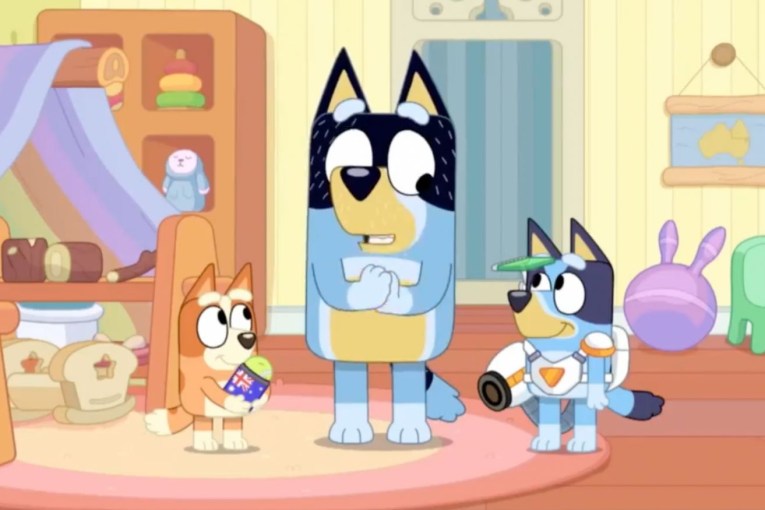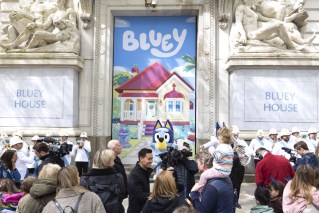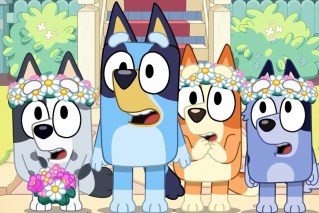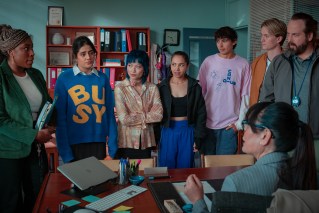Bride & Prejudice: The reality TV show that may truly be a social experiment

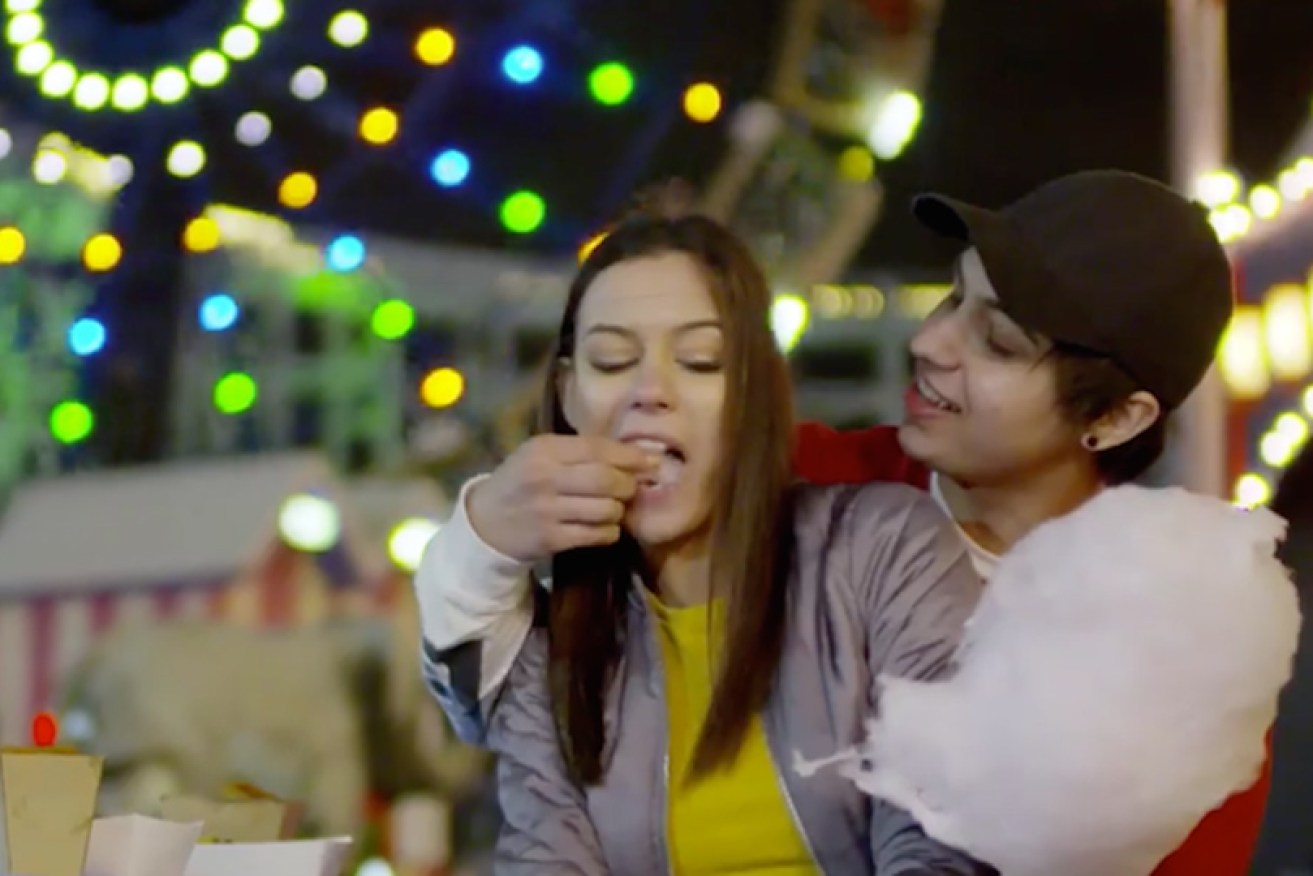
Sweet love? Seyat with fiancee Jess, called a "slutty party girl" by the groom-to-be's mother. Photo: Seven
Two weeks ago, the ghastly casting of this year’s The Bachelorette – a bridge too far even for the genre – made me swear off romality TV. Monday’s debut of the second series of Seven’s Bride & Prejudice: The Forbidden Weddings has brought me back for a one-off.
It’s partly thanks to Fatima. You know you have a live one on reality TV when a mother-in-law calls her son’s fiancée a “slutty party girl” and says she “smells like cats”.
Fatima is such a caricature that a suspicious person might think she’s a paid plant, but there’s also something inherently sincere about her. Vitriol, mostly, but anyone who’s ever thought their child was going out with the wrong person will get her on some level.
Her big log of a 19-year-old son, Seyat, has proposed to Jess, 21, with a backdrop of balloons and a big carny-stall teddy atop the the Melbourne Star Observation Wheel.
While wedding turmoil is allegedly the star of Bride & Prejudice, Fatima comes a close second.
SNEAK PEEK: Fatima has a laundry list of reasons she doesn’t like Jess. And she’s about to say it all to her face.#BrideAndPrejudiceAU starts tonight 7.30 on @Channel7 | https://t.co/nmVbCzYGoI pic.twitter.com/OriU78rxQj
— Bride and Prejudice Australia (@brideprejudice) October 28, 2018
She’s hardcore, unflinching and possibly right in saying Seyat – seen a lot lying on his bed reading his phone and terrified of mum – is too young to get married.
The show is a romality rarity, an interesting and deceptively complex alternative to shallow Love Island, campy Blind Date and the uber-produced Married at First Sight.
Nine’s latter juggernaut offering pretends to be a “social experiment” where ‘experts’ matchmake couples, but it’s like calling the bloke who dresses up in the fake captain’s outfit in Flight Centre ads a pilot.
Bride and Prejudice doesn’t come anywhere near its rival’s pedigree as an unbeatable guilty pleasure, but may actually be an experiment which is genuinely provocative.
What could kill it is viewers might have had enough for now of reality TV romances.

Lily is too “vegetarian” for Hank’s parents. Photo: Getty
The premise is that star-crossed lovers – actual ones, not people brought together on TV by booze to boost their social media profiles – plan to marry but their families don’t approve.
There’s definitely potential for set-up drama. but also to start important conversations about family, society and perception.
The engaged couples break the news of their intention to wed to their families, then head to a ‘retreat’ to take part in intense therapy which will unpack the causes of tension, and spark what Seven calls “honest confrontations” to lead to a happily ever after.
The network promises “no topic is off limits as all attempt to mend existing relationships” and says the “results are raw, shocking and compelling.”
That’s usually TV PR speak meaning people will say xenophobic and homophobic grabs perfect for leading into commercial breaks and make viewers hate them passionately. That happens here. But there’s also substance.
And nastiness. “I don’t want my son to date a whore like that. Jess dresses up like a prostitute. She’s a big sook. She’s always whingeing,” Fatima snaps when Seyat breaks the news of his impending wedding.
She’s not the only parent with issues. There’s Queensland couple Terry and Margaret, who – while nibbling twiggy sticks next to their pool – denounce their son Hank’s intended Lily, 23, as “controlling, feminist, vegetarian”.
They think Hank, 26, would be happier with a woman who “doesn’t speak back”.
This silence is deafening… not what you want to hear when you’ve just announced your engagement #BrideAndPrejudiceAU pic.twitter.com/O9csOmW5bQ
— Bride and Prejudice Australia (@brideprejudice) October 29, 2018
In Terry’s words: “Lily has this belief that older white men have too much power and they have caused the world to be like it is”, while Margaret thinks Hank has “lost his spark” while dating Lily.
Then there’s John, whose daughter Ange, 23, is gay. John thinks she isn’t really gay, and that if her late mother had been around to provide a “lady’s touch”, she wouldn’t be with Dylan, 31.
“Adam didn’t put two boys in the garden. I don’t agree with two girls and two boys, full stop. It’s just not right … it’s an abomination,” John said.
“I love my daughter but I would prefer her to be with a man because I know it’s the right way.”
Can you believe Ange’s dad said THAT to his own daughter?! 😮#BrideAndPrejudiceAU | https://t.co/nmVbCzYGoI pic.twitter.com/IlHWSFZFOu
— Bride and Prejudice Australia (@brideprejudice) October 29, 2018
In isolation, the statements are narrow-minded at best, destructive at worst. But the cleverness in Bride and Prejudice is that it somehow manages to show the parents’ aim is achieving what they really think is in their children’s best interests.
The love story is just the beginning. The hate story is one chapter. And the question about whether people’s responsibility lies with themselves, their partners or their parents is the meat.
The show, if its therapy sessions avoid being hokey cliches where John is dancing to Bronski Beat in a rainbow jumpsuit after a sudden revelation, should intrigue viewers enough to keep them until the end.
– Bride and Prejudice: The Forbidden Weddings on Seven at 7.30pm October 30 and 31.
